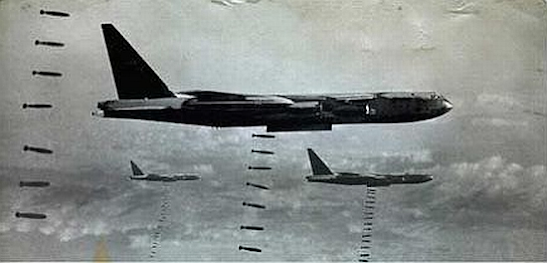Week 7 Blog
One tragic example in modern American history involves the politicization of intelligence regarding the U.S. bombing campaign of Cambodia during the Vietnam War. This campaign, authorized by President Nixon, involved bombardment of suspected North Vietnamese Army (NVA) and Viet Cong (VC) sites identified by American intelligence inside Cambodian borders, and destroy the supply lines of the Ho Chi Minh Trail. However, many intelligence assessments were deliberately exaggerated in order to justify a sustained bombing campaign which would pressure the Cambodian government into allowing a U.S. troop presence within the country, as a way to gain an advantage around NVA and VC lines in North Vietnam.
Estimates of casualties were kept deliberately low, and an effort was made to portray members of the Cambodian government as complicit in supporting the NVA presence. This effort ultimately failed, and the fallout resulted in massive numbers of civilian casualties, destruction of infrastructure, agriculture, and destabilization of the Cambodian government. This would contribute to the rise of the Khmer Rouge, a brutal regime that had long set sights on taking the country, and in the years that followed killed millions. The campaign fueled anti-war sentiment, doing irreparable damage to public perception of the United States' role in the conflict both during, and long after it's end.
-Alex Enriquez
References:
Benny, D.J. (2022). U.S. National Security and the Intelligence Services (1st ed.). CRC Press. https://doi-org.ezproxy.libproxy.db.erau.edu/10.4324/9781003270843
Form, W. (2009). Justice 30 Years Later? The Cambodian Special Tribunal for the Punishment of Crimes against Humanity by the Khmer Rouge. Nationalities Papers, 37(6), 889-923. https://doi.org/10.1080/00905990903230827


Comments
Post a Comment